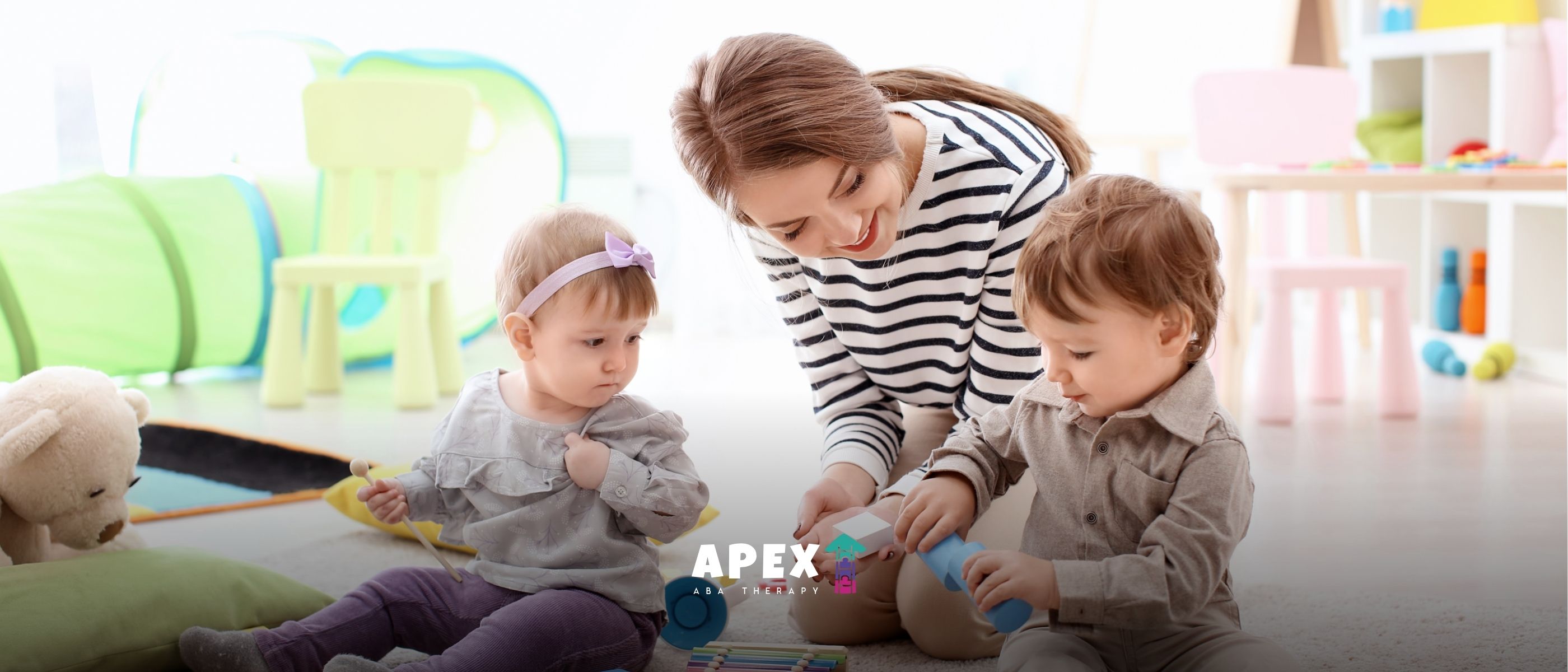Handwashing & Showering To Kids With Autism
With patience, understanding, and some helpful tips, handwashing and showering can become a more comfortable and enjoyable experience for kids with autism.
.jpg)
Handwashing & Showering To Kids With Autism

Understanding Sensory Processing
Sensory processing is a crucial aspect of a child's development. It refers to the way a person's brain receives, interprets, and responds to sensory information from the environment. For kids with autism, sensory processing can be particularly challenging, which can make certain activities overwhelming or uncomfortable.
For example, water running from a showerhead or the sensation of soap on the skin may be too intense for some kids with autism. As a parent or caregiver, it is essential to understand your child's sensory processing needs to make handwashing and showering a more positive experience. By creating a sensory-friendly environment, you can help your child feel more comfortable and at ease.
There are many ways to create a sensory-friendly environment for your child, such as using soft towels, providing a non-slip mat in the shower, and using a gentle soap. You can also experiment with different water temperatures or pressure settings to find what works best for your child.
Remember that every child is unique, and what works for one child may not work for another. So, be patient and keep trying until you find what works best for your child. With the right approach, you can help your child overcome their sensory processing difficulties and make handwashing and showering a positive and enjoyable experience for everyone involved.
Tips for Handwashing
Handwashing is an essential part of maintaining personal hygiene, but it can be a tricky task for kids with autism. Here are some tips to make handwashing more comfortable and enjoyable for your child:
- Use a visual schedule: A visual schedule can help your child understand the steps involved in handwashing. You can use pictures or written words to create a step-by-step guide that your child can follow.
- Use sensory-friendly soap: Some kids with autism may be sensitive to the smell or texture of soap. Try using a sensory-friendly soap that is gentle on the skin and has a pleasant scent.
- Make it fun: Turn handwashing into a fun activity by singing a song or using hand puppets to demonstrate the proper technique. This can make handwashing a more enjoyable experience for your child.
Tips for Showering
Showering can be a more challenging task than handwashing, but with some helpful tips, it can become a more comfortable experience for your child:
- Prepare the environment: Make sure the bathroom is quiet and free from distractions. You can also try adjusting the temperature of the water to your child's preference.
- Use a visual schedule: Similar to handwashing, a visual schedule can help your child understand the steps involved in showering. Use pictures or written words to create a step-by-step guide that your child can follow.
- Try a shower chair: A shower chair can provide additional support and comfort for your child during the shower. It can also make it easier for you to assist your child with washing.
- Use sensory-friendly products: Like with handwashing, try using sensory-friendly products such as shampoo and body wash that are gentle on the skin and have a pleasant scent.
Establishing a Routine
Establishing a routine for handwashing and showering is crucial for kids with autism. Routines provide predictability, which can reduce anxiety and help your child feel more comfortable with these activities.
Creating a routine can be as simple or complex as you'd like. You can start by choosing a specific time of day for handwashing or showering and sticking to it every day. This consistency can give your child a sense of control and familiarity.
You can also use visual aids such as picture schedules or checklists to help your child understand what is expected of them during handwashing and showering. These visual aids can also provide your child with a sense of security and predictability.
Remember that establishing a routine takes time, patience, and consistency. But once you establish a routine that works for your child, it can make handwashing and showering easier, more comfortable, and less stressful for everyone involved.
Tips for Introducing Handwashing and Showering to Resistant Kids
Introducing handwashing and showering to kids with autism who are resistant to these activities can be a challenging task. However, with patience, understanding, and some helpful tips, you can help your child overcome their resistance and make progress.
Here are some tips for introducing handwashing and showering to kids with autism who are resistant:
- Start small: Begin by introducing handwashing or showering in short intervals, gradually increasing the duration over time. This will allow your child to get used to the activity at their own pace.
- Use positive reinforcement: Reward your child for their efforts during handwashing or showering. Praise them for any progress they make, no matter how small it may seem.
- Provide choices: Allow your child to have some control over the experience by offering them choices such as which soap or shampoo they would like to use or what temperature they prefer the water.
- Make it sensory-friendly: As mentioned earlier in this document, creating a sensory-friendly environment can make handwashing and showering more comfortable for kids with autism. Use soft towels, provide a non-slip mat in the shower, experiment with different water temperatures or pressure settings until you find what works best for your child.
- Set clear expectations: Use visual aids such as picture schedules or checklists to help your child understand what is expected of them during handwashing and showering. Clearly communicate these expectations beforehand so that your child knows what is coming next.
Remember that every child is unique, and what works for one child may not work for another. Introducing handwashing and showering to resistant kids requires patience, consistency, and a willingness to try different approaches until you find what works best for your child. With time and effort on both sides, you can help your child overcome their resistance and establish good hygiene habits that will benefit them for a lifetime.
Addressing Sensory Sensitivities Related to Water Temperature
Water temperature can be a significant sensory trigger for some kids with autism during handwashing and showering. The sensation of cold or hot water on the skin may be too intense, causing discomfort or distress.
To address this issue, consider experimenting with different water temperatures until you find what works best for your child. Some children may prefer lukewarm water, while others may prefer cooler or warmer temperatures.
Another approach is to use a gradual temperature change method. Start with lukewarm water and gradually adjust the temperature until you reach the desired level. This can help your child acclimate to the change in temperature more easily.
It's also essential to communicate with your child about their preferences and sensations related to water temperature. Encourage them to express how they feel and adjust accordingly.
Remember that addressing sensory sensitivities related to water temperature takes time, patience, and experimentation. But with persistence and understanding, you can create a comfortable and enjoyable experience for your child during handwashing and showering.
Alternative Methods for Personal Hygiene
For some kids with autism, handwashing and showering may not be the most comfortable or feasible option. In these cases, alternative methods can be used to maintain personal hygiene.
One option is to use wipes or wet cloths to clean the body. These can be particularly helpful when traveling or in situations where access to a shower or sink is limited. It's essential to choose wipes that are gentle on the skin and free from harsh chemicals.
Another alternative is taking a bath instead of a shower. Baths can be more comfortable for some kids with autism as they provide a sense of security and comfort. You can experiment with different water temperatures and add sensory-friendly products such as Epsom salts or essential oils to enhance the experience.
It's important to remember that maintaining personal hygiene is crucial for overall health and well-being. By offering alternative methods, you can help your child find a solution that works best for them and promotes good hygiene habits.

Handling Challenging Behaviors
Challenging behaviors can arise during handwashing or showering for kids with autism. These behaviors may include resistance, tantrums, or even aggression. As a parent or caregiver, it's essential to understand that these behaviors are not intentional and may stem from sensory processing difficulties.
Here are some tips for handling challenging behaviors during handwashing or showering:
- Stay calm: It's crucial to remain calm and composed when your child exhibits challenging behavior. Yelling or getting upset can escalate the situation and make it more challenging to resolve.
- Identify triggers: Try to identify what triggers your child's behavior. For example, they may be sensitive to the smell of soap or the sensation of water on their skin. By understanding these triggers, you can take steps to avoid them or mitigate their impact.
- Use positive reinforcement: Praise your child for any progress they make during handwashing or showering, no matter how small it may seem. Positive reinforcement can motivate your child and make them more willing to participate.
- Provide choices: Allow your child to have some control over the experience by offering them choices such as which soap or shampoo they would like to use or what temperature they prefer the water.
- Take a break: If your child becomes overwhelmed or agitated, take a break from handwashing or showering and try again later when they are calmer.
Remember that handling challenging behaviors during handwashing or showering takes patience, understanding, and a willingness to try different approaches until you find what works best for your child. With time and effort on both sides, you can help your child overcome their challenges and establish good hygiene habits that will benefit them for a lifetime.
Encouraging Independence in Personal Hygiene Tasks
Encouraging independence in personal hygiene tasks is an essential step in helping kids with autism develop good hygiene habits. It can also promote their self-esteem and confidence.
Here are some tips for encouraging independence in personal hygiene tasks:
- Create a routine: Establishing a routine for handwashing and showering can help your child understand what is expected of them and provide a sense of predictability. You can use visual aids such as picture schedules or checklists to help your child follow the routine independently.
- Break it down into steps: Breaking down personal hygiene tasks into smaller steps can make them more manageable for your child. Use visual aids or written instructions to help your child understand each step involved.
- Provide guidance: While encouraging independence, it's important to provide guidance and support when needed. Be available to answer questions or provide feedback on their technique.
- Use positive reinforcement: Praise your child for their efforts during personal hygiene tasks, no matter how small they may seem. Positive reinforcement can motivate your child and make them more willing to participate independently.
- Gradually increase responsibilities: As your child becomes more comfortable with personal hygiene tasks, gradually increase their responsibilities. For example, you can ask them to wash their hands without assistance or take a shower independently.
Remember that encouraging independence takes time, patience, and consistency. With the right approach, you can help your child develop good hygiene habits and promote their overall well-being.
Frequently Asked Questions (FAQs)
How often should I encourage my child to wash their hands?
It's recommended that children wash their hands frequently throughout the day, especially before eating or after using the bathroom. Encouraging handwashing as a routine activity can help promote good hygiene habits.
What if my child is resistant to showering or bathing?
Introducing handwashing and showering to kids with autism who are resistant can be challenging. Starting small, using positive reinforcement, providing choices, making it sensory-friendly, and setting clear expectations can help address resistance. Additionally, alternative methods such as using wipes or taking a bath instead of a shower can be used to maintain personal hygiene.
What if my child exhibits challenging behavior during handwashing or showering?
Challenging behaviors may arise during handwashing or showering for kids with autism. Staying calm, identifying triggers, using positive reinforcement, providing choices, and taking breaks when necessary can help handle these situations.
Can I encourage independence in personal hygiene tasks for my child with autism?
Yes! Encouraging independence in personal hygiene tasks is an essential step in helping kids with autism develop good hygiene habits and promoting their self-esteem and confidence. Creating a routine, breaking tasks into smaller steps, providing guidance and support when needed, using positive reinforcement, and gradually increasing responsibilities can all aid in encouraging independence.
Conclusion
Handwashing and showering can be a challenging task for kids with autism, but with some helpful tips and understanding of sensory processing, it can become a more comfortable and enjoyable experience for both the child and their caregiver. Remember to be patient, understanding, and make it a fun activity for your child. By doing so, you can help your child develop good hygiene habits that will benefit them for life.
Sources
- https://tbh.com/blog/how-to-teach-handwashing-showering-to-kids-with-autism/
- https://raisingchildren.net.au/toileting-hygiene/personal-hygiene-autistic-teens
- https://childmind.org/article/teaching-handwashing-to-children-with-a-developmental-disability/
- https://www.autismtoolbox.co.uk/personal-hygiene-and-toileting/
Frequently Asked Questions
More posts you’ll enjoy

Engaging Water Play Activities for Autism: Sensory Benefits & Examples
Explore water play activities for autism with sensory benefits, skill-building ideas, and how water helps regulation, motor skills, and social growth.

Navigating Autism and Holidays: Practical Tips for Calm & Confidence
Learn how autism and holidays intersect, common challenges, and evidence-based strategies to help your child stay calm, connected, and included.

Understanding Turn-Taking in Autism: Skills, Challenges, and Support
Learn about turn-taking in autism, why it matters, common challenges, and how ABA supports skill development in communication and play.



